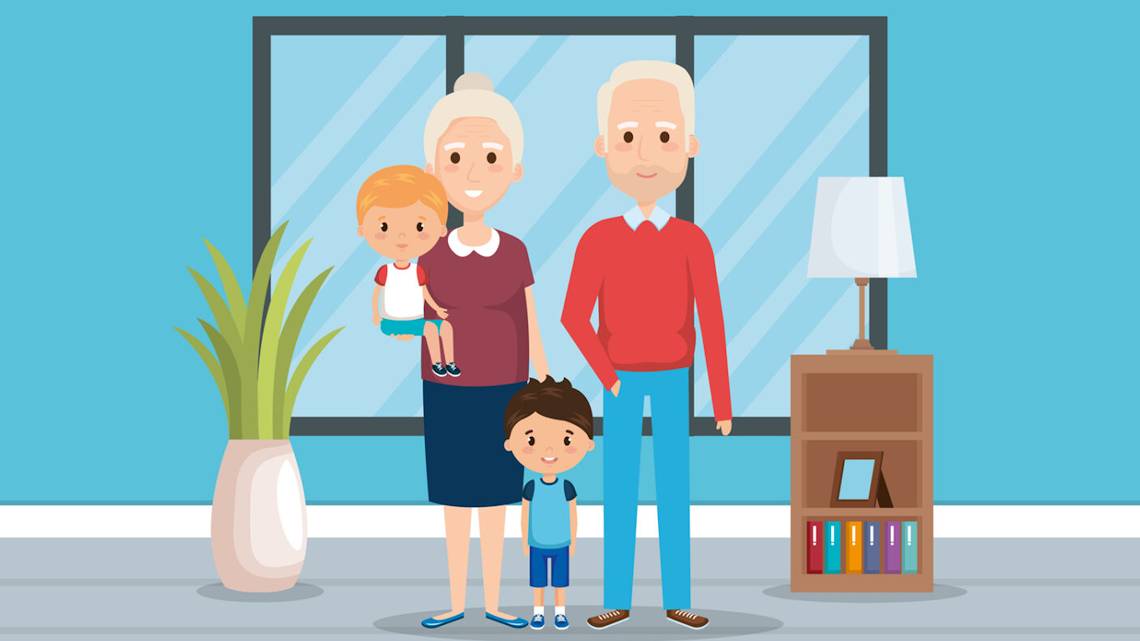
It’s Father’s Day this month. A special shout out to all the new dads. Now that we’re in the spotlight over Mom for once (amirite?), I’m reflecting on one of my favorite unexpected blessings of fatherhood: how much I learn from my kids.
What a deadbeat. I’m the one who’s supposed to do the teaching, right? Well, rather than calling them “teachable moments”, how about “timely reminders”, OK?
Here’s my timely reminder for June, which also happens to be Loneliness Awareness Month: “Take a closer listen”.
Let me elaborate: About a year ago, my son wanted to quit swimming lessons. He was six, a good swimmer, and used to love it. But, for whatever reason, he was beginning to push back — making excuses, showing reluctance, asking if he could skip.
I remembered this incident while trying to put together this article about new fatherhood and mental health, and encouraging dads to do the things that should be good for them. If you’ve got a new father who’s struggling a bit, feeling confused, distant from his spouse, sidelined, lonely even… what should you tell him?
Conventional wisdom is pretty clear:
- Talk to your spouse
- Share your feelings
- Ask for help
Ahem. Yeah… right… Like every man in the world is going to follow that advice. I might as well tell an octopus, “Be a little less wriggly, would ya?”
Traditionally, men can be reluctant to open up about their feelings. Theories abound as to why. Chiefly, boys were taught they must show strength, and that emotions (aside from anger) show weakness. This is perhaps even more prevalent in Asian cities like Hong Kong.
That’s unfortunate, because conventional wisdom also tells us that bottling up emotions leads to mental health challenges and other undesirable outcomes, first perhaps loneliness, but maybe even worse: substance abuse, depression, and their ilk. Of course, it’s not a good recipe for healthy connections with partners either.
Back to my son. Hazarding another male stereotype, he’s not the most naturally gifted communicator. Sure, he’ll talk your ear off about dinosaurs or Harry Potter, if you let him. More representatively, if you ask, “How was school today?” he’ll invariably one-word it with “Good.”
Being typical parents, my wife and I attempted all the usual suspects to motivate and reinvigorate my son’s weekly swimming commitment.
“What’s the matter?” No reply.
“We thought you liked swimming?” Shoulder shrug.
“Why don’t you want to go?” Averted eyes.
“You have to go. It’s good for you!” Silence.
After much prodding and prompting, the best we could get out of him was another entry from kiddom’s greatest hits of communicating with mommy and daddy. Wait for it… “I don’t know.”
Typical male. Unexpressive. Stoic. Suffering in silence.
Or could it be that he was still figuring out his emotions and how to express them? Probably not very sure about what he was thinking or feeling in the first place?
Eventually, my wife and I sat back, stopped badgering, and took a closer listen. Guess why he wanted to quit swimming? It wasn’t because he was tired or burned out. Or that he didn’t like it anymore. Or that a friend had quit. Or he’d been bullied or something terrible. Wait for it… He was cold.
Easy fix. We buy him a warmer swimsuit. Bob’s your uncle.
So, what should we takeaway here?

If you ever find yourself in a situation when you’re not feeling quite right, but you’re also not very sure about what you’re feeling… take a closer listen.
Like my son, maybe the voice in your head says, “I don’t know”. Or maybe you have an inkling that you should talk about it, but the voice says, “I don’t wanna”. Then don’t panic; just listen.
The pressures of becoming a new dad are significant. I know the experience knocked me for a loop. Little or no paternity leave (Come on, Hong Kong, we can do better!). Confusing expectations with little or no training. A changing relationship with your spouse. A tendency to feel sidelined. All this and more can naturally affect your mental wellbeing.
So, let’s say you’re a new dad, adjusting to all the changes, and feeling in a vague funk. You may, fleetingly, decide you ought to talk to somebody about it. But you quickly shut yourself down with a sweeping, monolithic generalization along the lines of “I don’t wanna talk” or “Men don’t talk”.
If you get stuck on that monolithic narrative, there’s no room to even start to work towards any change. “I don’t wanna” boils down to “I’m not gonna”.

So, take another moment, and take another listen. Don’t badger yourself. Be patient and understanding. Most importantly, try digging beyond the monolith. Often, you can identify other reasons at play.
What if the issue is more about “I don’t have time”. Well then, you can try to make some time, right? Even if it’s small, you now have some room for movement there.
What if you listen to yourself, and the voice comes back saying, “I can’t bother my spouse. She’s got so much on her own plate already!” Understandable. But again, that’s something you might be able to work with. Give it a try. Open up a conversation. I’ll bet your spouse – busy as they may be – has actually been waiting for you to make this move for a very long time.
(“You have no idea how long!” says every spouse ever.)
Unlike my son’s situation, perhaps the solution is not as simple as buying some warmer clothing. But you never know. Give it a try and find out. It’s bound to be worthwhile for you, your spouse, and your offspring to give your monolithic narratives a closer second listen.
Even better, in recognition of Loneliness Awareness Month, try talking to someone else, and let them do the listening. As much as you think, you’re probably not going through it alone. It’s encouraging there are men’s groups forming in Hong Kong that offer a space to listen to ourselves as well as our peers going through what you may be going through and their own unique experiences too.
Happy Father’s Day to one and all.
Photo Credits:
First image: Istock pc: TinyDoz
Second image: Istock pc:Parinyabinsuk
References
Iwamoto, D. K., Liao, L., & Liu, W. M. (2010). Masculine Norms, Avoidant Coping, Asian Values and Depression among Asian American Men. Psychology of Men & Masculinity, 11(1), 15–24. https://doi.org/10.1037/a0017874
Keizer, R., Dykstra, P. A., & Poortman, A. R. (2010). The transition to parenthood and well-being: the impact of partner status and work hour transitions. Journal of Family Psychology : JFP : Journal of the Division of Family Psychology of the American Psychological Association (Division 43), 24(4), 429–438. https://doi.org/10.1037/a0020414
Reay, M., Mayers, A., Knowles-Bevis, R., & Knight, M. T. D. (2023). Understanding the Barriers Fathers Face to Seeking Help for Paternal Perinatal Depression: Comparing Fathers to Men Outside the Perinatal Period. International Journal of Environmental Research and Public Health, 21(1), 16. https://doi.org/10.3390/ijerph21010016

Dr Brent E Horner
About the author
Dr. Brent E. Horner, PsyD is a clinical psychologist who works with individuals and couples by integrating a range of theories and practical skills from different psychotherapy traditions. Originally from the US, he has lived in Hong Kong since 1995. He has two sons who turned 8 and 4 in May.
Recently Added
Generation Z, popularly known as Gen-Z, is the class of individuals born between 1996 and 2010. These individuals were born directly into …
Adaptogens are a class of natural herbs, roots, and mushrooms that assist the body in adapting to stressors in the environment. These …
The journey of raising children comes with countless moments where they need our support and guidance. Whether our children are typically developing …




